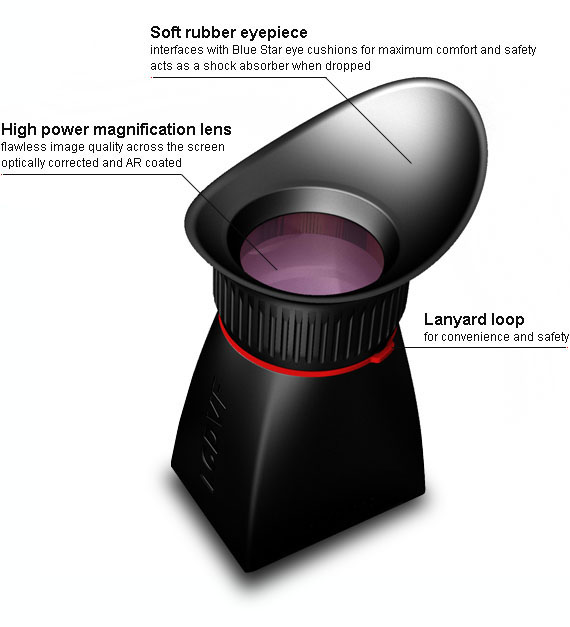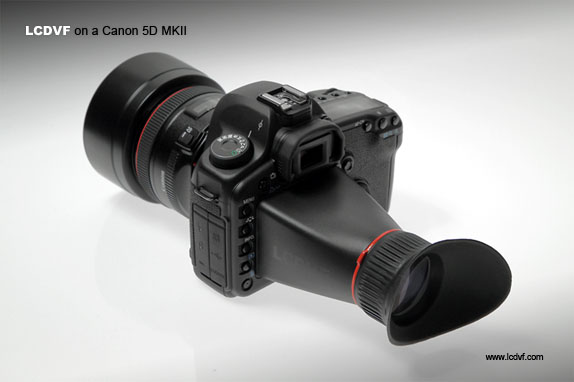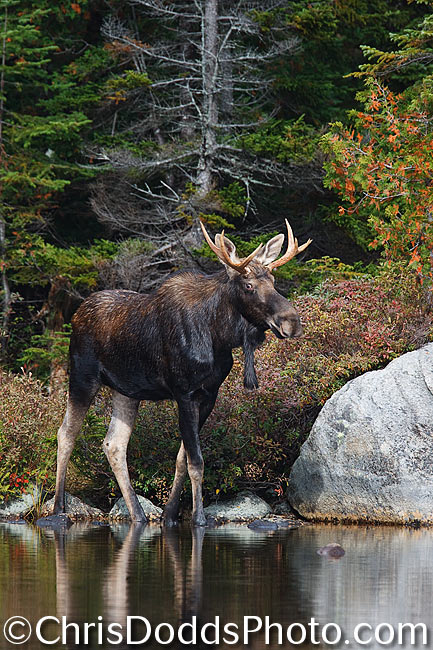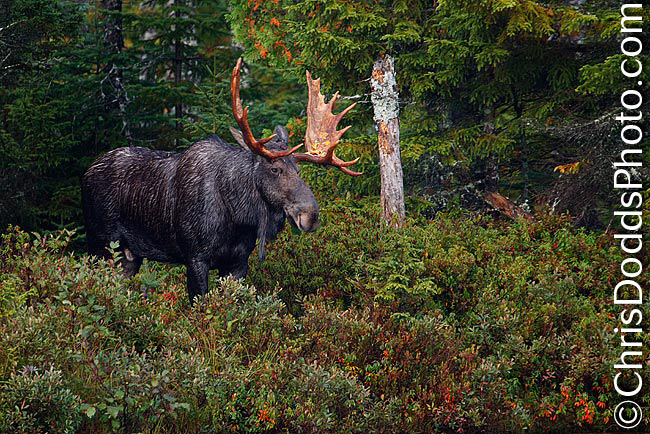 Bull Moose Giant of the Northwoods (Alces, Elan, Orignal) Baxter State Park, Maine Image Copyright ©Christopher Dodds www.chrisdoddsphoto.com All Rights Reserved. Canon EOS 1DsMKIII, 500mm F4 and 2XII tele-converter Gitzo 1325 Tripod and Wimberley Head II. ISO 400, F8 1/160s Manual. CLICK HERE TO PURCHASE A PRINT or LICENSE IMAGE FOR PUBLICATION.
Bull Moose Giant of the Northwoods (Alces, Elan, Orignal) Baxter State Park, Maine Image Copyright ©Christopher Dodds www.chrisdoddsphoto.com All Rights Reserved. Canon EOS 1DsMKIII, 500mm F4 and 2XII tele-converter Gitzo 1325 Tripod and Wimberley Head II. ISO 400, F8 1/160s Manual. CLICK HERE TO PURCHASE A PRINT or LICENSE IMAGE FOR PUBLICATION.
Moose & Fall Colors of Maine September 27 to October 1, 2010; It's not too late
Only two spots left, so it's not too late to join Christopher Dodds in Baxter State Park and surrounding areas (near Millinocket, Maine) for a truly unique workshop. Our primary focus will be the Moose that are renowned for allowing close human approach. Our trip is also timed to coincide with the amazing fall colors that illuminate Baxter State Park every fall. Though not guaranteed (Moose are wild and free, after all), I often have Moose walking so close to us that we can feel their warm breath in the cool, fall, Maine air. We have traveled far to photograph these majestic giants of the Northern forest, so we won't be spending much time indoors at the computer (like many other photography groups); this trip is all about being out there with the Moose - seeing, being and documenting their behavior during the annual Rut. Other subjects may include White-Tailed Deer, Black Bear, fox and various birds. SEE MORE INFORMATION HERE.
See the blog entries from the 2009 Moose & Fall Colors Workshop / Safari:
The White-Tailed Deer of Baxter State Park Trip Report Part I
American Black Bears of Baxter State Park Trip Report Part II
The Many Moose of Baxter State Park Trip Report Part III
Testimonial
"I was impressed on how much Chris cared about making sure everyone was learning, engaged, and getting the most out of the trip. I look forward to my next workshop with Chris!" Michael Lyncheski Gladstone, NJ
LCDVF Digital SLR Viewfinder / Magnifier Review
The LCDVF is a 2X loupe that is designed as a LCD viewfinder for video-enabled digital SLR’s. Not only for the video enthusiast, the LCDVF is an invaluable aide to achieve more accurate and precise focus for the still photographer. The loupe also acts to block ambient light while shooting outdoors in live-view mode, or reviewing images on the LCD screen for sharpness and the histogram for exposure accuracy. The LCD ViewFinder turns your DSLR LCD screen into a huge electronic viewfinder for precise image evaluation - it’s like viewing a 42" screen from 140cm (4.6 feet).

The part I like most about the LCDVF, is it’s ingenious adhesive ultra-slim metal frame that secures the LCDVF to your camera using four small magnets (located at the camera end of the loupe frame). The LCDVF ships with two magnetic/adhesive frames; only one frame is needed, the extra one is a spare or could be used on a second camera. The magnets are strong enough to securely hold the LCDVF against your camera, but weak enough to break-away if you forget that the lanyard is around your neck and walk away from your expensive camera set-up with a long lens on a tripod; preventing a possible disaster. The company promises these four magnets aren’t strong enough to damage your camera, it’s electronics or the data on your memory card.
 There are two models available; the LCDVF for most cameras with a 3” LCD screen, and the LCDVF 3/2 which is custom fit to the Canon 550D, Rebel T2i and the Kiss X4.
There are two models available; the LCDVF for most cameras with a 3” LCD screen, and the LCDVF 3/2 which is custom fit to the Canon 550D, Rebel T2i and the Kiss X4.
The LCDVF has a removable, rotating rubber eye-cup, and was shipped with a foam/microfiber eye cushion that I found useful and comfortable, it includes are a neck strap with quick release buckle and a neoprene pouch (which is well built, but could be about 20% bigger, in my opinion).
I spend an enormous amount of time reviewing images in the field while photographing and teaching outdoor nature photography workshops. The LCDVF has already proven itself to be durable and water resistant and I already can’t imagine shooting without it. The optics are bright and crisp and the LCDVF offers a great view of the whole 3” screen without loosing sight of the corners.
Help support this site and Purches the LCDVF HERE or LCDVF 3/2 HERE
Visit the LCDVF website HERE.


